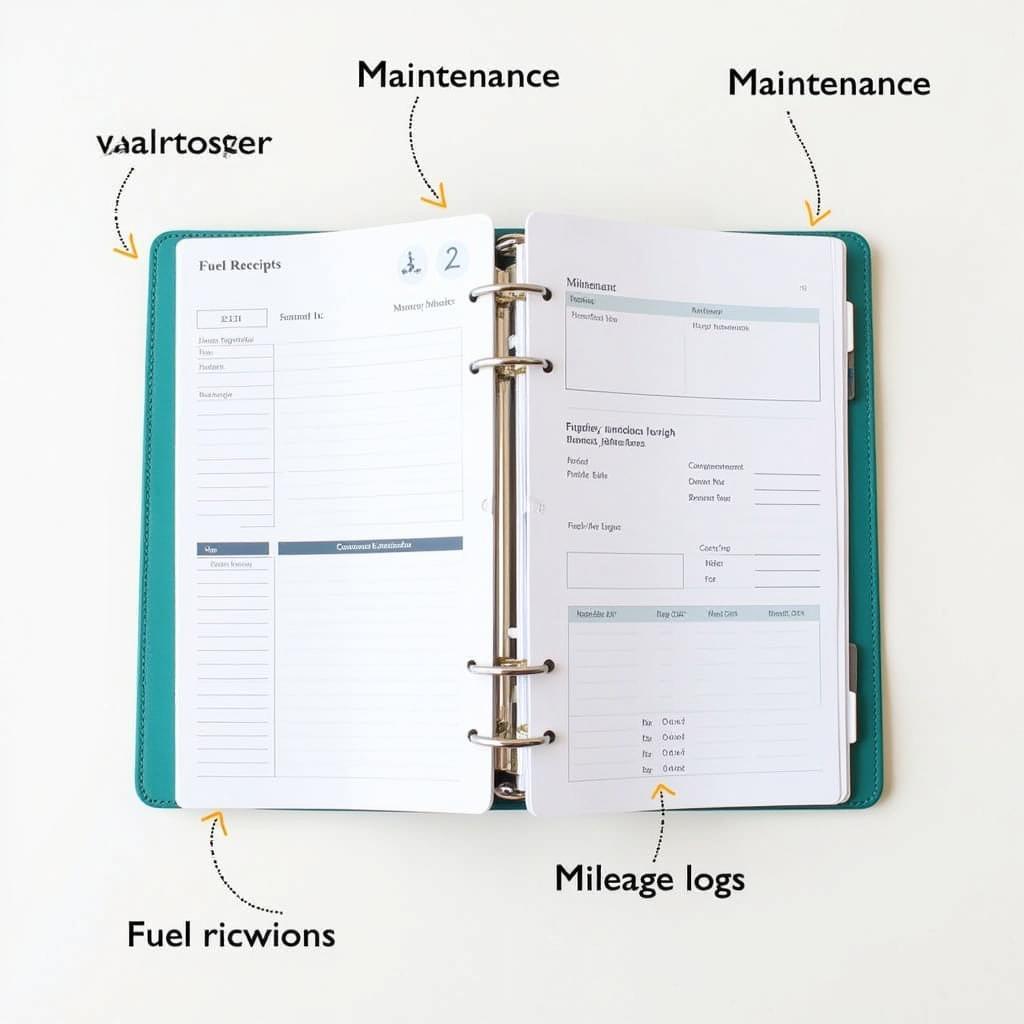Fuel injection systems are vital for modern cars, playing a key role in delivering fuel to the engine for optimal performance and fuel efficiency. However, like any mechanical component, fuel injection systems need regular maintenance to ensure they operate smoothly and reliably. Neglecting regular maintenance can lead to decreased fuel economy, engine misfires, and even costly repairs. This comprehensive guide will delve into the essential aspects of car fuel injection maintenance, including a recommended schedule, common issues, and preventative measures.
Understanding the Importance of Fuel Injection System Maintenance
A well-maintained fuel injection system guarantees efficient fuel combustion, leading to improved engine performance and fuel economy. Regular servicing helps prevent common problems that can arise from worn-out parts, contamination, or buildup.
Here’s a breakdown of the benefits of fuel injection system maintenance:
- Enhanced fuel economy: Clean injectors and fuel lines promote optimal fuel delivery, resulting in better fuel efficiency.
- Improved engine performance: A well-maintained fuel injection system ensures consistent fuel delivery, leading to smoother engine operation and optimal power output.
- Reduced emissions: Efficient fuel combustion minimizes harmful emissions, contributing to cleaner air quality.
- Prolonged engine life: Regular maintenance helps prevent premature wear and tear on engine components, extending its lifespan.
- Lower repair costs: Catching and addressing minor issues early can save you from costly repairs later.
Car Fuel Injection Maintenance Schedule: A Practical Guide
To ensure your car’s fuel injection system remains in tip-top shape, follow this comprehensive maintenance schedule:
1. Routine Inspections:
- Every 3,000-5,000 Miles (5,000-8,000 Kilometers): Conduct a visual inspection of the fuel lines, fuel filter, and injectors for any signs of leaks, cracks, or damage.
- Every 12,000-15,000 Miles (20,000-24,000 Kilometers): Have your mechanic perform a thorough inspection of the entire fuel injection system, including the fuel pump, injectors, and fuel lines.
2. Fuel Filter Replacement:
- Every 12,000-15,000 Miles (20,000-24,000 Kilometers): Replace the fuel filter. This essential component prevents contaminants from entering the fuel lines and injectors, ensuring clean fuel delivery.
3. Fuel Injector Cleaning:
- Every 30,000-45,000 Miles (48,000-72,000 Kilometers): Have your mechanic perform a fuel injector cleaning service. This involves injecting a cleaning solution into the fuel line to dissolve buildup and restore optimal fuel flow.
4. Fuel Pump Inspection:
- Every 60,000-75,000 Miles (97,000-121,000 Kilometers): Have your mechanic inspect the fuel pump for signs of wear, noise, or decreased pressure. If necessary, replace the fuel pump.
5. Fuel System Flush:
- Every 60,000-75,000 Miles (97,000-121,000 Kilometers): Consider a fuel system flush to remove any accumulated deposits and ensure optimal fuel flow.
Addressing Common Fuel Injection Problems: Early Detection and Solutions
Identifying and addressing common fuel injection problems early can save you time, money, and potential headaches.
Here are some of the most common fuel injection issues and their solutions:
1. Fuel Injector Clogging:
- Symptoms: Engine misfires, rough idle, poor acceleration, decreased fuel economy.
- Causes: Buildup of deposits in the injectors, restricting fuel flow.
- Solutions: Fuel injector cleaning service.
2. Fuel Pump Failure:
- Symptoms: Engine stalling, difficulty starting, reduced fuel pressure.
- Causes: Wear and tear, electrical issues, or damage.
- Solutions: Replacement of the fuel pump.
3. Fuel Filter Clogging:
- Symptoms: Engine hesitation, decreased fuel economy, reduced power.
- Causes: Accumulated dirt, debris, or contaminants.
- Solutions: Replacement of the fuel filter.
4. Fuel Line Leaks:
- Symptoms: Fuel odor, puddles under the car, decreased fuel pressure.
- Causes: Cracks, corrosion, or damage to the fuel lines.
- Solutions: Repair or replacement of damaged fuel lines.
Preventing Fuel Injection Problems: Proactive Maintenance Tips
Proactive maintenance is key to preventing costly fuel injection problems down the road.
Here are some preventative measures you can take:
- Use high-quality fuel: Choose high-octane fuel with additives that help clean injectors and prevent deposits.
- Avoid ethanol blends: If possible, use fuels with lower ethanol content as ethanol can contribute to deposits and corrosion in the fuel system.
- Regularly check the fuel filter: Inspect the fuel filter for any signs of dirt or debris.
- Monitor for leaks: Be vigilant for any fuel leaks and address them promptly.
- Adhere to the maintenance schedule: Follow the recommended maintenance schedule for your vehicle’s fuel injection system.
Expert Insight: Fuel Injection System Maintenance
“Regular fuel injection system maintenance is essential for extending the life of your car’s engine and ensuring optimal performance. Even small deposits can significantly impact fuel economy and engine efficiency. It’s best to have your fuel injectors cleaned at least once a year, especially if you frequently use lower-quality fuel or drive in areas with high humidity,” says John Miller, a seasoned automotive technician with over 20 years of experience.
“When it comes to fuel injection systems, prevention is key,” adds Sarah Evans, a leading automotive expert and author. “By following a regular maintenance schedule, you can avoid costly repairs and ensure your car runs smoothly for years to come.”
Frequently Asked Questions (FAQ)
1. How often should I change my fuel filter?
It’s generally recommended to replace your fuel filter every 12,000-15,000 miles (20,000-24,000 kilometers). However, it’s essential to consult your vehicle’s owner’s manual for specific recommendations.
2. Can I clean my fuel injectors myself?
While there are DIY fuel injector cleaning solutions available, it’s generally recommended to have a professional mechanic perform the service for optimal results.
3. What are the signs of a bad fuel pump?
A bad fuel pump can cause engine stalling, difficulty starting, or a lack of power. It’s essential to address any of these symptoms promptly.
4. How much does fuel injection system maintenance cost?
The cost of fuel injection system maintenance varies depending on the age and make of your vehicle, the specific service required, and your local labor rates.
5. What are some common fuel injection system problems?
Common fuel injection problems include fuel injector clogging, fuel pump failure, fuel filter clogging, and fuel line leaks.
For professional automotive advice and service, please contact AutoTipPro at +1 (641) 206-8880 or visit our office at 500 N St Mary’s St, San Antonio, TX 78205, United States.
By adhering to the recommendations in this guide, you can ensure your car’s fuel injection system operates efficiently and reliably for years to come. Remember, preventative maintenance is key to avoiding costly repairs and ensuring optimal performance.






Leave a Reply